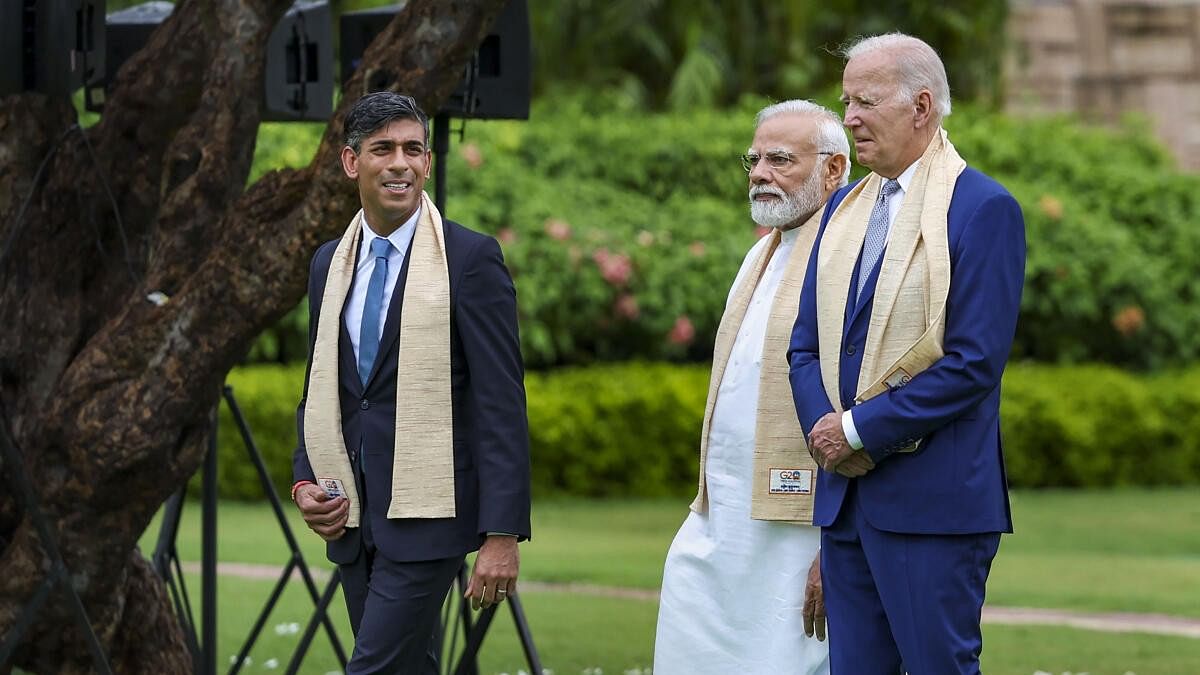
Prime Minister Narendra Modi with US President Joe Biden and United Kingdom Prime Minister Rishi Sunak
Credit: PTI Photo
Elections are scheduled for 2024 in about 60 countries and regions, including the European Union, which comprises 27 countries.
Tentatively, national elections will be held in 18 countries in Africa, 17 in Asia, 5 in North America, 4 in Oceania, and 2 in South America. A US-based think organization called the Integrity Institute predicts that there won't be as many elections in a single year until 2048, as per the Integrity Institute, a US-based think tank.
In the three biggest democracies of the world—India, the United States, and Indonesia—more than two billion citizens will exercise their franchise. The first of these will be Indonesia, where general elections are set to take place on February 14.
Then in April and May, around 900 million people in India are expected to cast their vote and decide the fight between Narendra Modi-led BJP and the I.N.D.I.A. alliance.
On November 5, the US, a nation with 160 million registered voters, will hold elections to select its 60th president. There is uncertainty surrounding Donald Trump's candidacy as two states of the US, Colorado and Maine have already barred him from appearing on the ballot. Two Indian-American candidates, Vivek Ramaswamy and Nikki Haley are in the picture as well with the Democrat and current President Joe Biden aiming for a second term.
Nine other European nations will have national elections, apart from the European Union, where elections are scheduled for June 6–9. Russia and Ukraine, the two warring states, are among them; their respective presidential elections are set for March 15–17 and March 31.
The United Kingdom is set to go for polls as well. According to recent statements made by the UK Prime Minister Rishi Sunak, general elections in his country would most likely occur in the second half of 2024.
South Asia is predicted to be one of the busiest regions, as India along with its neighbouring states of Pakistan, Bangladesh, Maldives, Sri Lanka, and Bhutan—are all holding elections in 2024.
Elections in Bangladesh are scheduled for January 7, and it is anticipated that the Awami League-led coalition led by Prime Minister Sheikh Hasina will secure a fourth consecutive term in office. The main opposition party in the country, the Bangladesh Nationalist Party, led by former prime minister Khaleda Zia, is boycotting the polls
Pakistan's senate voted on a non-binding resolution on January 5 calling for a postponement of the country's general elections citing the country's ‘prevailing security conditions.’ The elections were scheduled for February 8 in the neighbouring country. Imran Khan, the nation's former prime minister, is still behind bars.
Another neighbouring country Sri Lanka may finally have polls this year. Since 2018, the nation has not held a general election, which President Ranil Wickremesinghe continuously postponed in an attempt to salvage the nearly bankrupt economy of the country.